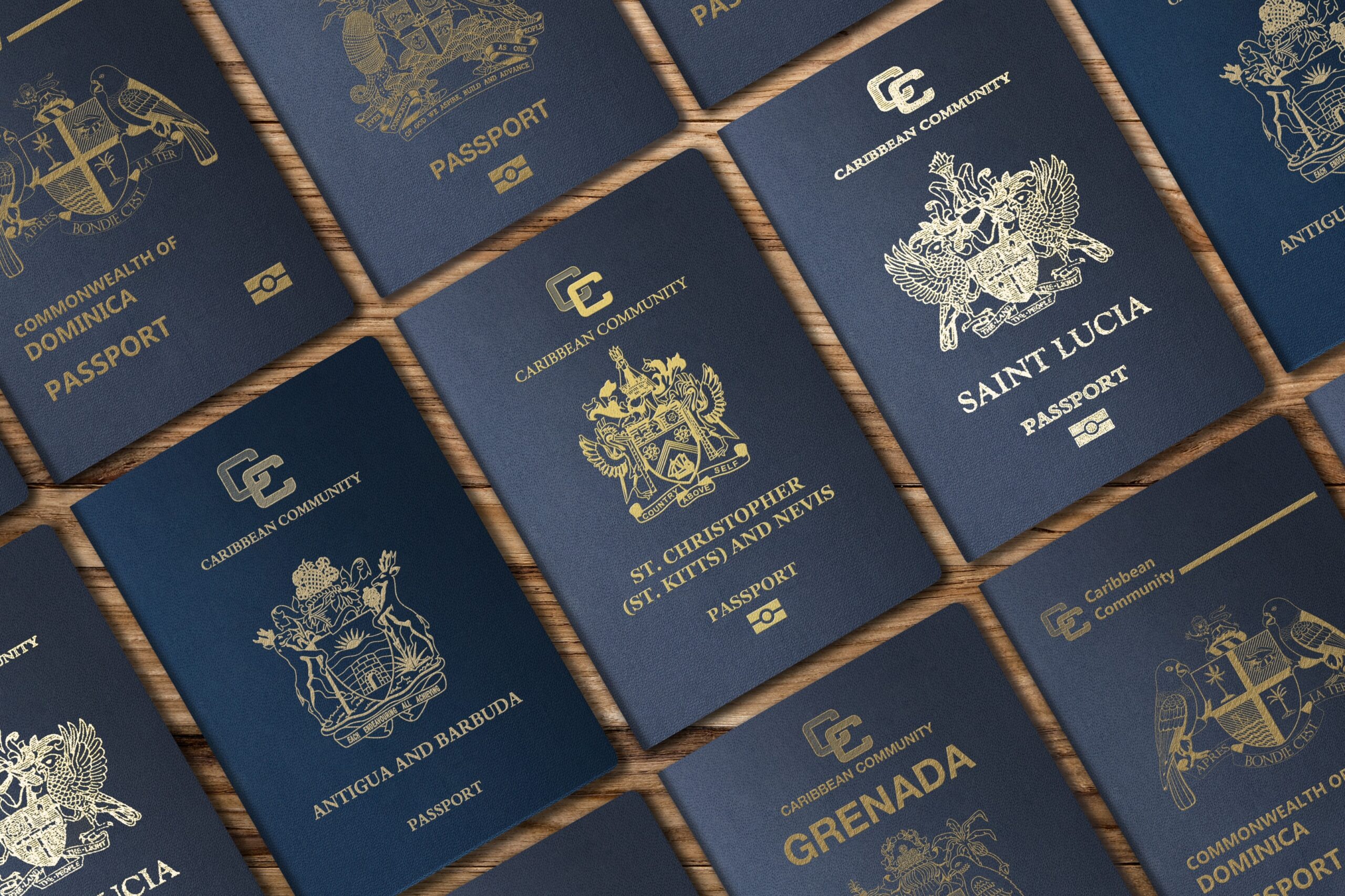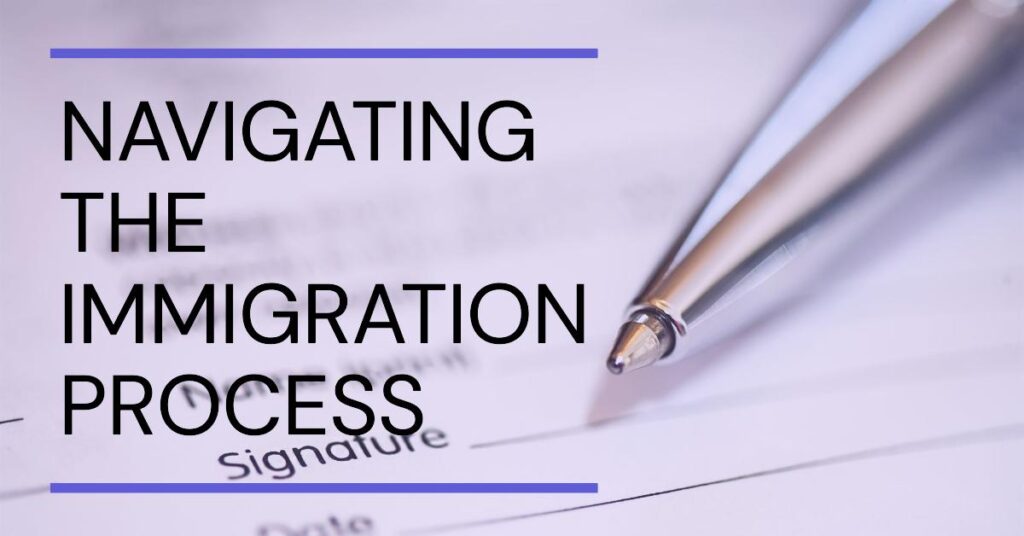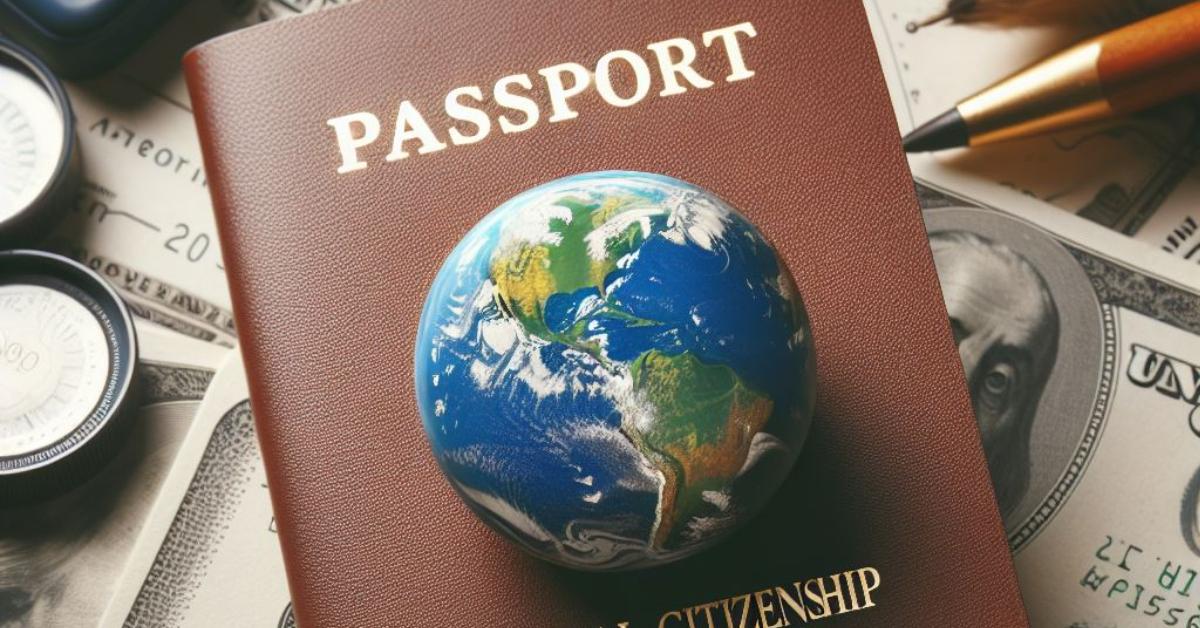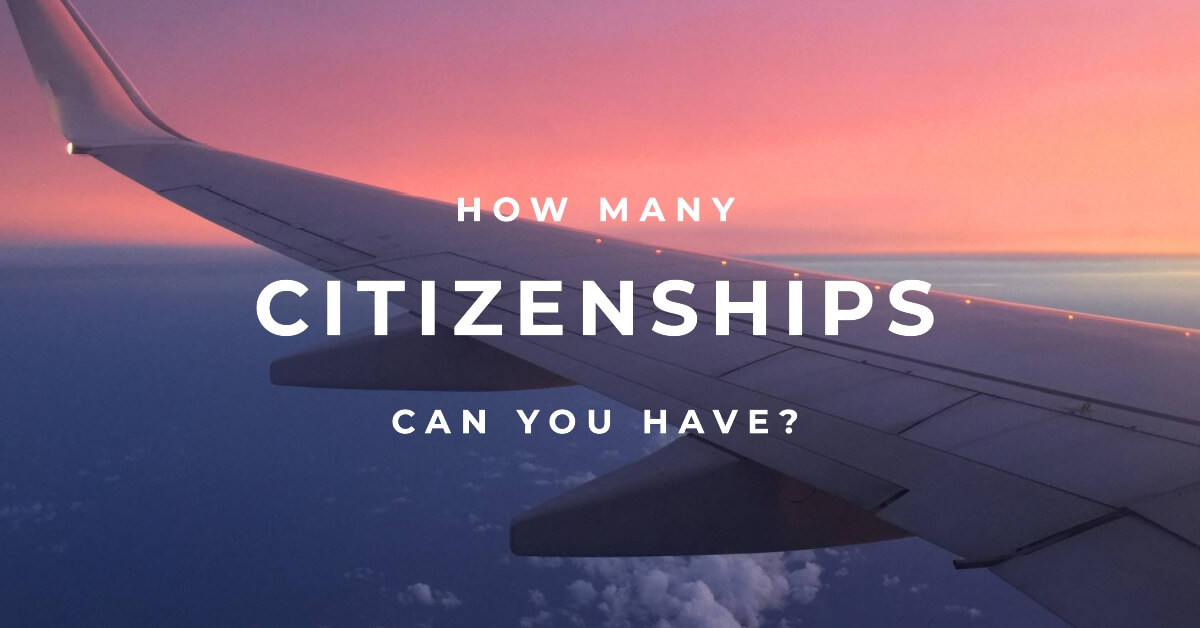Where is the easiest place to get citizenship by investment in 2025? The answer still depends on your goals and budget. Caribbean programs have raised minimum contributions and tightened due diligence, new options such as Nauru have launched, and some popular EU routes have closed. Meanwhile, about 142,000 millionaires are expected to relocate globally this year, only a small share via CBI. The appeal of global mobility is a major factor, as citizenship programs can enable travel to numerous countries without a visa. In addition, some countries offer affordable citizenship options, making these programs attractive to a wider range of investors.
Table of Contents
Which is the easiest country to get citizenship?
Professional Wealth Management (Financial Times) publishes the CBI Index, which benchmarks various investment programs and evaluates their respective citizenship process for applicants, focusing on freedom of movement, living standards, due diligence, minimum investment, and processing. Use its 2024 edition for comparative context, then check below for the latest prices and rules.

Dual citizenship in the Caribbean
Many global-minded investors choose Caribbean citizenship-by-investment (CBI) for straightforward processes and strong mobility, especially short-stay, visa-free access across Europe’s Schengen Area. These programs are particularly popular among those seeking second citizenship, as they often allow applicants to include family members such as spouses, children, and sometimes parents in their applications.
Short-stay Schengen access for these five countries is based on EU Regulation 2018/1806 (Annex II) (EUR-Lex).
Note: no CBI guarantees a U.S. visitor visa; those are always at consular discretion. Only Grenada has a U.S. E-2 treaty that can allow eligible citizens to apply for a U.S. investor visa (USCIS, U.S. State Dept. treaty list). Also, Dominica’s visa-free entry to the UK was withdrawn on 19 July 2023 (UK Parliament statement).
Five Caribbean states run CBI programs: Dominica, St Kitts & Nevis, Grenada, St Lucia, and Antigua & Barbuda. Below you’ll find the current (2025) minimums and options from their official program pages.
Dominica
Minimum investment (contribution): from US $200,000.
- Government fund (EDF): $200,000 for a single applicant; $250,000 for a main applicant + up to 3 dependants; plus fixed add-on amounts for each extra dependant (Dominica CBIU – EDF).
- Real estate: buy approved property from $200,000; hold 3 years (or 5 years if you resell to another CBI applicant). Government fees apply (e.g., $75,000 main applicant; schedule on page) (Dominica CBIU – Real Estate).
Process notes: no residence requirement. Interviews are mandatory (usually virtual) and fee-based for applicants aged 16+ (Dominica CBIU – fees & interview note on EDF page). Applicants must also provide evidence of a clean criminal record as part of the eligibility criteria.
Travel note: UK visa-free access no longer applies (since 19 July 2023). Schengen short-stay visa-free remains under EU Reg 2018/1806 (UK notice, EUR-Lex).
St Kitts & Nevis
Minimum investment (contribution): from US $250,000.
- Sustainable Island State Contribution (SISC): $250,000 minimum (St Kitts CIU – CBI Options).
- Public Benefit Option: $250,000 to an approved public-benefit project .
- Developer’s Real Estate: from $325,000 in an approved development.
- Private Real Estate Sale: from $600,000 in an approved private property.
In some cases, citizenship may also be granted to individuals who provide exceptional services that benefit the nation.
Program mechanics and fees are set out in the 2024 Regulations and CIU brochure (links on the CIU site), which comply with current immigration laws . No residency requirement.
Grenada
Minimum investment (contribution): from US $235,000.
- National Transformation Fund (NTF): flat $235,000 (same minimum for single applicants and family applications; see fee tables for due diligence, processing, interview) (Investment Migration Agency Grenada – Application Guide (fees)).
- Real estate: approved property from $270,000 (or $350,000 depending on the project) plus $50,000 government fee; see the official fee schedule for full details.
Grenada is on the E-2 treaty list eligible Grenadian citizens can apply for a U.S. E-2 investor visa (not automatic) (USCIS E-2 overview, U.S. State Dept. treaty list).
Process notes: Mandatory interviews are in place; applications go through authorised agents (IMA Grenada – Application Guide).
Antigua & Barbuda
Minimum investment (contribution): from US $230,000.
- National Development Fund (NDF): $230,000 minimum contribution (CIP Antigua – Citizenship page).
- Real estate: from $300,000 in an approved project; hold 5 years.
- Business investment: $1,500,000 solo; or $5,000,000 joint (min $400,000 per investor).
- UWI Fund: $260,000 (inclusive of processing fees).
Presence rule: new citizens must spend 5 days in Antigua & Barbuda within the first 5 years (the law provides for deprivation of citizenship if this isn’t met) (CIP Antigua – presence requirement shown on page).
Tax note: personal income tax was abolished in April 2016 (Government press release).
Saint Lucia
Minimum investment (contribution): from US $240,000.
- National Economic Fund (NEF): $240,000 for a main applicant with up to three dependants (current legal schedule) (Saint Lucia Gazette – 9 July 2024, also reflected on the CIP Saint Lucia).
- Real estate: $300,000 minimum + admin/processing & due-diligence fees (CIP Saint Lucia – Real Estate criteria).
- National Action Bond (NAB): $300,000 (5-year holding) + $50,000 admin fee (CIP Saint Lucia – FAQs).
- Enterprise projects: from $3,500,000 (solo) or $6,000,000 (joint), with job-creation thresholds; there is also a $250,000 option in Schedule 2 for some cases.
Process notes: interviews/due-diligence are active, with interviews conducted (per the programme’s 2023–24 Annual Report) (CIP Saint Lucia – Annual Report).

What is the easiest country to get citizenship in Europe? (2025 update)
Short answer: Across Europe, no country currently grants citizenship directly by investment. The last such route, in Malta, ended in 2025. Instead, the most common pathway is residence by investment, after holding residency for several years and meeting requirements such as language knowledge, investors may apply for citizenship through naturalization.
Below are the updated rules, costs, and timelines for the five key destinations: Portugal, Spain, Cyprus, Greece, and Hungary.
Portugal
Status: residence by investment (Golden Visa / ARI). Portugal’s golden visa program is one of the most popular in Europe.
Minimum investment: from €250,000 but not in real estate. Since October 2023, Portugal ended real-estate and capital-transfer routes. Current qualifying options include: a €250,000 cultural donation; €500,000 into research; €500,000 into qualifying non-real-estate investment funds; or company/job creation. See AIMA. Reform law: Lei n.º 56/2023.
Stay requirement: 7 days in the first year and 14 days in each subsequent two-year period, per AIMA.
Path to citizenship: after 5 years of legal residence and passing a basic Portuguese exam (A2). These residency requirements must be met before applying for Portuguese citizenship. Since April 2024, time counts from filing your first residence application. Law: Lei Orgânica n.º 1/2024.
Spain
Status: investor residence (real-estate route closed in 2025).
Reform: On 3 April 2025, Spain eliminated new investor visas linked to real estate.
Existing holders: can renew under transitional rules.
Path to citizenship: residence after 10 years (shorter for some nationals), plus language/civics exams (DELE A2, CCSE). Applicants can apply for Spanish citizenship after meeting the residency and exam requirements, and the naturalization process can eventually lead to citizenship. Spain generally does not permit dual citizenship, but there are exceptions for certain countries. See Administracion.gob.es.
Cyprus
Status: no CBI. Only Permanent Residence by Investment (Reg. 6(2)).
Minimum outlay: €300,000 + VAT in approved options (new residential property; commercial real estate; Cyprus company shares; or regulated funds) + annual income €50,000 (+€15,000 spouse, +€10,000 per child). Migration Dept..
Presence: visit at least once every two years.
Path to citizenship: naturalization after 7 years of residence + B1 Greek. Obtaining permanent residence in Cyprus can eventually lead to citizenship, provided you meet the required period of residence.
Greece
Status: Golden Visa still open, thresholds increased in 2024.
Real-estate thresholds (since April 2024):
- €800,000 in Attica, Thessaloniki, Mykonos, Santorini, and larger islands;
- €400,000 in other regions;
- €250,000 for special cases (conversions/restorations). Law: FEK A’ 49/5-4-2024.
The Greek Golden Visa is especially attractive to wealthy foreigners seeking residency and a pathway to citizenship through investment.
Presence: no minimum stay for the permit.
Path to citizenship: after 7 years of residence + B1 Greek language exam.
Hungary
Status: Residency by Investment (Guest Investor Program)
Minimum investment options (2025):
- €250,000 into an approved real estate fund (regulated by the Hungarian National Bank).
- €1,000,000 donation to a higher education institution managed by a public-interest foundation. Wikipedia summary.
Permit validity: residence permit for 10 years, renewable. Immigrant Invest.
Path to permanent residence and citizenship: PR possible after 3 years; naturalization after 8 years of continuous residence (with language and integration requirements, as well as stable income ). Applicants must have legally resided in Hungary for the required period to be eligible for naturalization. Global Citizen Solutions.
Travel/stay benefits: visa-free travel in Schengen; no strict physical presence beyond maintaining the investment.
Bottom line
- Portugal: flexible ARI, min €250k, 5 years to citizenship, minimal stays.
- Spain: real-estate route closed; 10 years for citizenship.
- Cyprus: PR from €300k + income; must become a permanent resident, then 7 years for citizenship.
- Greece: GV at €400k–€800k (few €250k cases); 7 years to citizenship with language exam.
- Hungary: Guest Investor Program from €250k; PR after 3 years as a permanent resident; naturalization after 8 years.
Other Active CBI Programs
Turkey (Türkiye)
Status: Active Citizenship by Investment Program
Minimum investment:
- $400,000 purchase of real estate (must be held at least 3 years).
- $500,000 bank deposit, government bonds, or investment fund shares.
Official details: Investment Office of the Presidency of Turkey.
Processing time: usually 6–9 months.
Path to citizenship: direct. Investors and their families obtain Turkish passports without a residence period.
Travel benefits: Turkish citizens can travel visa-free or with visa on arrival to around 110 destinations, including Japan, South Korea, Singapore, and much of Latin America. Negotiations with the EU on Schengen access remain ongoing.
FAQs
Where is the cheapest citizenship-by-investment program?
As of 2025, the lowest contribution options are in the Caribbean. The new regional minimum is US$200,000 for a donation to the state fund (applies to Antigua & Barbuda, Dominica, Grenada, St Kitts & Nevis, and St Lucia). For families, Antigua’s UWI Fund option (US$260,000 all-inclusive for a family of four) remains one of the most cost-effective routes (CIP Antigua).
How much do you need to invest to get a second passport?
It varies by country and option:
- Caribbean: from US$200,000 (donation) or $270,000–325,000 (real estate), plus fees.
- Europe: there is no direct citizenship-by-investment anymore. Instead, you apply for residency by investment. Entry thresholds:
- Portugal: from €250,000 (cultural donation or other qualifying options, not real estate).
- Greece: from €400,000–800,000 for real estate (few €250k exceptions).
- Hungary: from €250,000 into a regulated real estate fund or €1 million donation.
- Portugal: from €250,000 (cultural donation or other qualifying options, not real estate).
- Greece: from €400,000–800,000 for real estate (few €250k exceptions).
- Hungary: from €250,000 into a regulated real estate fund or €1 million donation.
Where is the fastest way to get citizenship?
Caribbean CBI programs are the quickest, approvals typically in 3–6 months.
In Europe no instant citizenship routes. The shortest track is Portugal, you can apply for naturalization after 5 years of residence, with minimal stay requirements. Greece and Cyprus require at least 7 years of residence for citizenship, while Spain requires 10 years in most cases.




